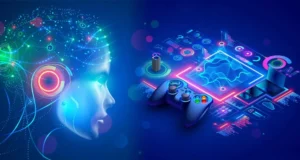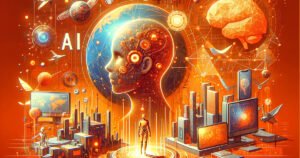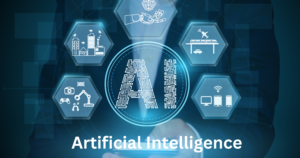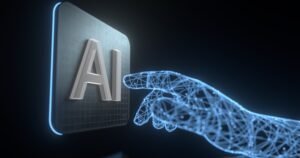In the ever-evolving landscape of technology, one phrase has garnered immense curiosity and interest – “Wait, But Why Artificial Intelligence.” This captivating topic delves into the fascinating realm of AI, exploring its potential, ethical implications, and the profound impact it holds on our future. In this article, we’ll embark on a journey to understand the essence of “Wait But Why Artificial Intelligence,” shedding light on its significance and the questions it prompts.
I. The Genesis of “Wait But Why”
“Wait But Why” is a thought-provoking platform known for its insightful explorations of complex subjects.
When it comes to Artificial Intelligence, this phrase becomes a beacon, inviting us to pause and ponder the implications of this transformative technology.
II. The Dance of Humanity and Machines

At the heart of “Wait But Why Artificial Intelligence” lies a fundamental question: How does AI intersect with human existence?
It prompts us to envision a future where machines not only complement our capabilities but also challenge the very essence of what it means to be human.
III. The Potential Unleashed
“Wait But Why Artificial Intelligence” serves as a reminder of the vast potential within our grasp.
AI promises advancements in healthcare, revolutionizes industries, and holds the key to solving some of humanity’s most pressing challenges.
It invites us to consider a world where tasks once deemed impossible become routine, thanks to the ingenuity of artificial minds.
IV. Ethical Contemplations
Delving into the realm of AI inevitably leads us to confront ethical dilemmas. “Wait But Why Artificial Intelligence” urges us to contemplate questions of autonomy, accountability, and the implications of ceding decision-making to machines.
It challenges us to navigate the uncharted waters of moral responsibility in an AI-driven world.

V. The Quest for Superintelligence
“Wait, But Why Artificial Intelligence” sparks curiosity about the pursuit of superintelligence.
It beckons us to ponder the potential outcomes of creating entities that surpass human cognitive abilities.
What safeguards must be in place?
What ethical frameworks guide the development of such entities?
VI. The Role of Society
The phrase “Wait, But Why Artificial Intelligence” underscores that the journey into AI is not a solitary one.
It calls upon society to engage in open dialogue, fostering a collective understanding of the challenges and opportunities that lie ahead.
It emphasizes that the decisions we make regarding AI will shape the course of humanity for generations to come.
Conclusion: A Call to Contemplate
“Wait But Why Artificial Intelligence” encapsulates the essence of a journey – a journey into the heart of a technological revolution that holds the power to redefine our existence. It beckons us to pause, reflect, and contemplate the profound impact AI will have on our lives, our societies, and our shared future.
As we navigate this path, guided by the light of curiosity and wisdom, “Wait But Why Artificial Intelligence” serves as a beacon, reminding us to consider not only what we can achieve with AI but also the responsibility that comes with wielding such extraordinary power. It is a call to chart a course that ensures the evolution of AI is not only remarkable but also profoundly human.
FAQs
What is the Reason for artificial intelligence?
The reason for artificial intelligence is to create machines and systems that can perform tasks that typically require human intelligence, such as learning, reasoning, problem-solving, and decision-making.
Why AI become popular in 2023?
AI became popular in 2023 due to significant advancements in technology, increased investment in AI research and development, and its growing integration into various industries, leading to practical applications and widespread adoption.
Why artificial intelligence is the future?
Artificial intelligence is considered the future because it has the potential to revolutionize countless industries, improve efficiency, solve complex problems, and create new opportunities for innovation and automation.
Will AI change our Life?
Yes, AI has the potential to change our lives significantly. It can enhance productivity, improve healthcare, revolutionize transportation, enhance customer experiences, and transform various other aspects of daily life.
Who is the father of AI?
The term “artificial intelligence” was coined by John McCarthy, Marvin Minsky, Nathaniel Rochester, and Claude Shannon in a conference at Dartmouth College in 1956. While McCarthy is often referred to as the “father of AI,” it’s important to note that AI development involved contributions from numerous researchers over time.









